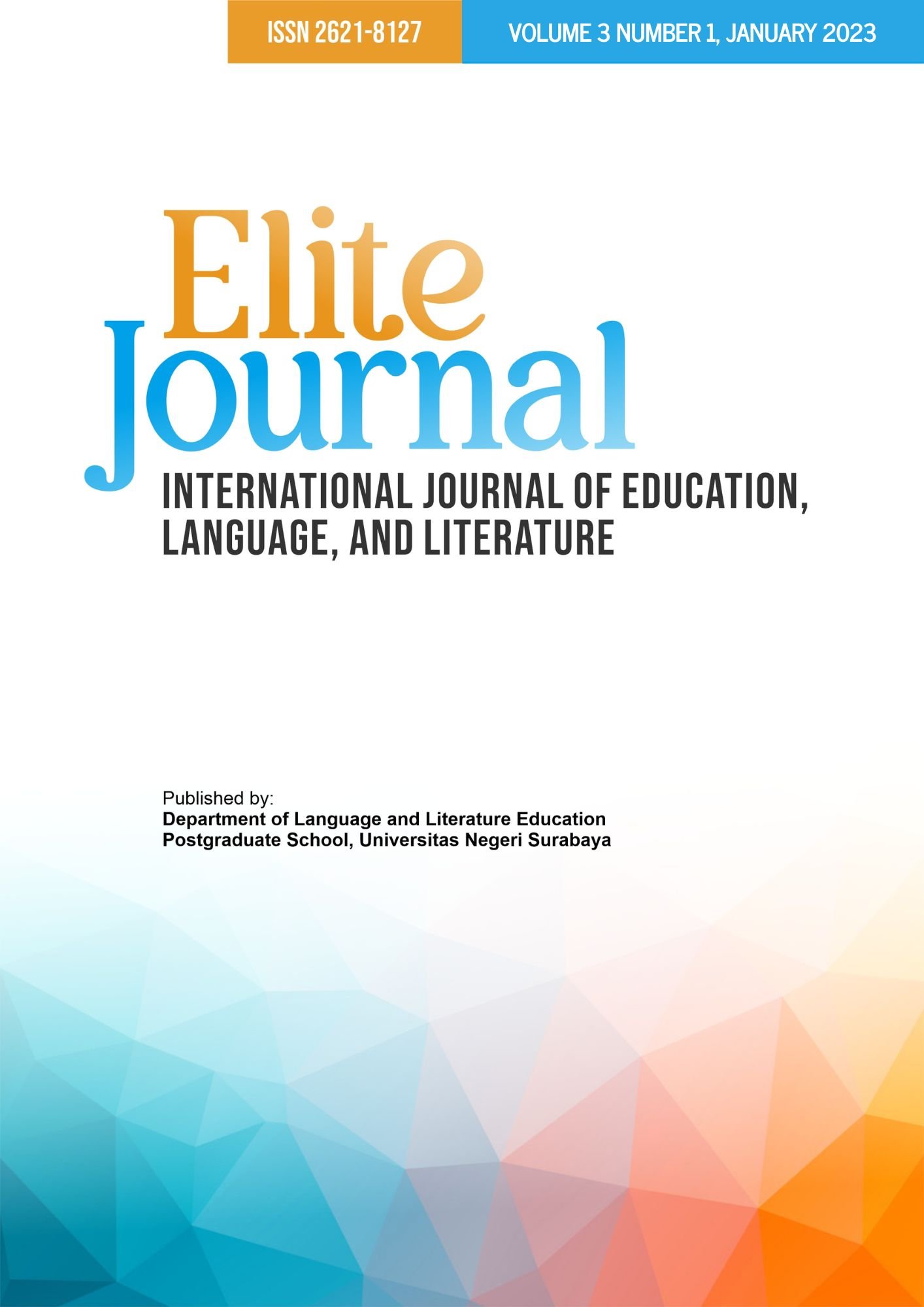EMONI’S SELF ACTUALIZATION IN WITH THE FIRE ON HIGH
English
DOI:
https://doi.org/10.26740/elitejournal.v3n1.p46-56Keywords:
Personal Interest, with the fire on high, self actualization, motivationAbstract
Interest may appear from curiosity about a subject, skill, or anything else. It implies that the motivation to study and act has come from interest. Interest has two types which are personal interests and situational interests. Personal interest refers to a person's generally consistent and enduring disposition, personality feature, or quality toward something. While the psychological state of being interested in a task or activity at a specific time is known as situational interest. This study focuses on the personal interests in the cooking of Emoni Santiago, a female character in With the Fire on High. She becomes motivated to learn about the culinary field and take Culinary Arts programs as her education to improve her skills in cooking. This study analysis used five aspects of interest promoted by Schunk et al. This study's findings are Emoni Santiago's personal interest which can be approved from her general attitude toward the activity, her specific conscious use for or living, her enjoyment of the activity, personal importance of the significance of the activity to the individual, and participation to the activity. The personal interest is used to determine that Emoni Santiago is motivated for learning about Culinary Arts since the program allows her to stay in touch with her interest in cooking. Furthermore, the Culinary Arts program can teach her something new, such as the fact that culinary is more than just preparing cuisine; it encompasses the art of everything related to culinary terms.
References
Acevedo, E. (2019). With the Fire on High. New York: United States. Harper Collins.
Chen, A & Darst, P. (2002). Individual and Situational Interest: The Role of Gender and Skill. Contemporary Educational Psychology. 27(2), 250-269. https://doi.org/10.1006/ceps.2001.1093
Lambert, V. A., & Lambert, C. E. (2012). Qualitative Descriptive Research: An Acceptable Design. Pacific Rim International Journal of Nursing Research, 16, 255-256.
Schunk, D. H., Pintrich, P. R., Meece, J. L., & Pintrich, P. R. (2014). Motivation in education: Theory, research, and applications. Upper Saddle River, N.J: Pearson/Merrill Prentice Hall.
Downloads
Published
How to Cite
Issue
Section
License
Copyright (c) 2023 Berya Kamayan Adi Martinus Martinus

This work is licensed under a Creative Commons Attribution 4.0 International License.
 Abstract views: 155
,
Abstract views: 155
, PDF Downloads: 191
PDF Downloads: 191





